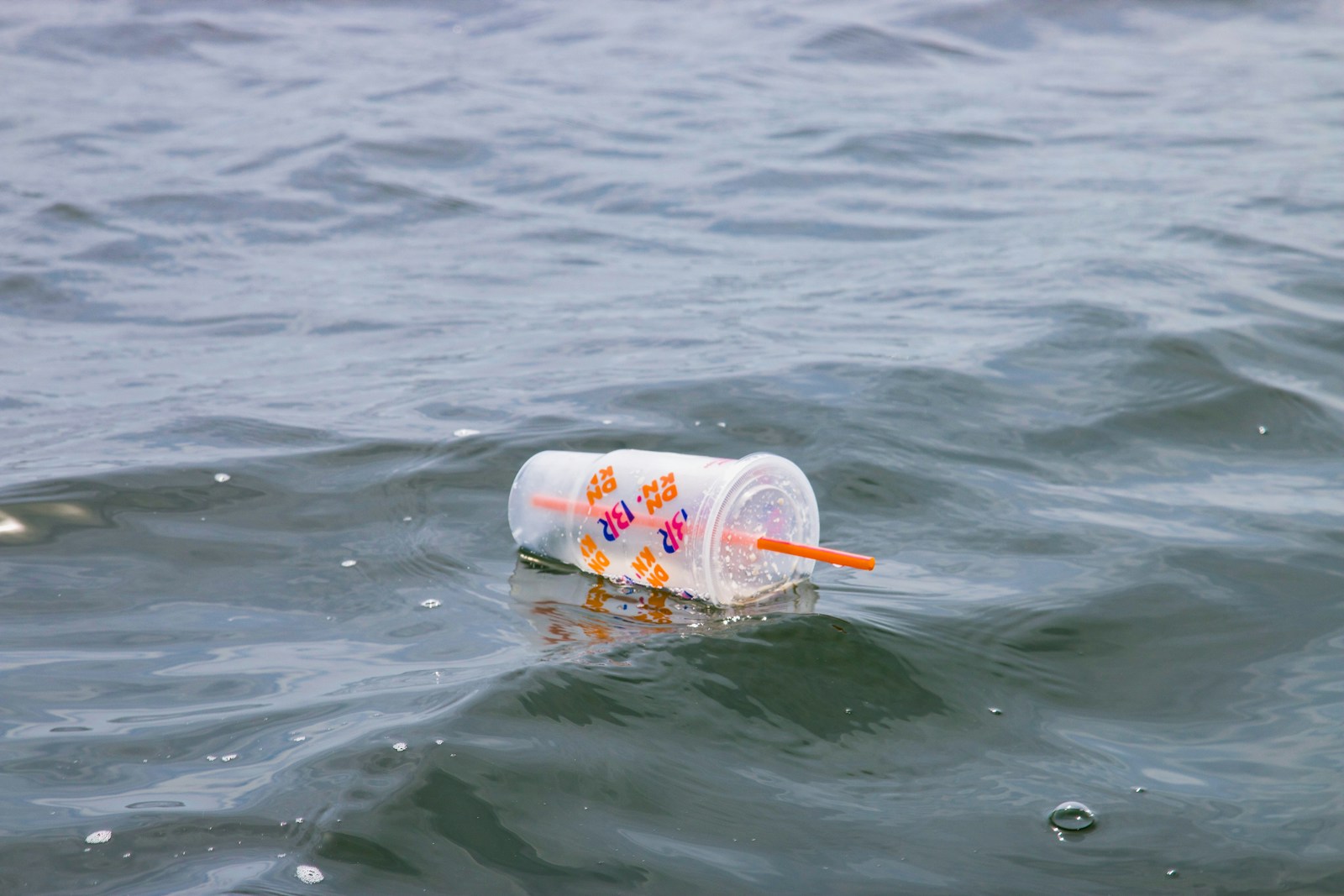Kerala High Court Bans Single-Use Plastics in Hilly Tourist Hotspots: A Model for Sustainable Governance

Introduction
In a significant move to strengthen environmental protection, the Kerala High Court has, on its own motion, initiated proceedings to address the unchecked use of single-use plastics (SUPs), particularly in the state’s ecologically fragile hilly tourist regions. Through this Suo-motu public interest litigation, the Court reaffirmed the constitutional obligation to safeguard the environment and issued detailed directions for strict enforcement of the Environment (Protection) Act, 1986, and the Plastic Waste Management Rules, 2016. This judicial intervention comes at a crucial juncture, as Kerala continues to grapple with the rising threat of plastic pollution in high-footfall tourist destinations.
Factual Background
The Kerala High Court took Suo-motu cognizance of the unchecked rise in single-use plastic usage, despite the State Government’s ban effective from January 1, 2020, and the Kerala State Pollution Control Board’s directive issued in 2018. The Court observed that plastic consumption has significantly increased post-COVID-19, leading to severe environmental harm, including the spread of microplastics in water bodies.
Emphasizing the constitutional duty under Article 51A(g) to protect the environment, the Bench comprising Justices Bechu Kurian Thomas and Gopinath P. relied on a report by the Local Self Government Department that identified ten major hill stations including Munnar, Thekkady, Vagamon, Athirappally, and Wayanad as plastic pollution hotspots due to high tourist footfall.
Notably, the proceedings were also informed by contributions from appointed amici curiae and a party-in-person, highlighting the inclusive and consultative nature of the adjudication.
Key Directions Issued by the Kerala High Court
In a decisive step to combat environmental degradation, the Kerala High Court invoked its jurisdiction under Article 226 of the Constitution and issued a comprehensive set of directions to curb the use of single-use plastics (SUPs) across the State. These directions will come into effect from October 2, 2025.
1. Ban on Single-Use Plastics in Hilly Tourist Areas
The Court imposed a complete ban on the use and sale of specific SUPs in high-footfall hilly tourist destinations, including:
- Plastic food containers, plates, cups, straws, sachets, and bakery boxes.
Exemptions were made for plastic water bottles of 5 liters and above and soft drink bottles of 2 liters and above.
2. Prohibition in Government and Private Functions
The following items are now banned in all official events and private gatherings:
- Plastic water bottles (below 5L),
- Soft drink bottles (below 2L),
- Plastic straws, plates, cups, and cutlery.
This prohibition applies to:
- All Central and State Government functions,
- Weddings, hotels, restaurants, and auditoriums throughout Kerala.
These restrictions must now form part of the licensing conditions for all such establishments.
3. Promotion of Sustainable Alternatives
The Court prescribed viable eco-friendly alternatives to promote a smoother transition:
| Plastic Item | Suggested Alternatives |
| Plastic water bottles (<2L) | Water kiosks, stainless steel, glass, or copper bottles |
| Plastic food containers | Sugarcane bagasse, areca palm, ceramic, tin-plate containers |
| Plastic bags (non-woven) | Cloth or paper bags |
| Plastic sachets | Filling stations or reusable containers |
4. Installation of Water Kiosks and Refill Stations
District administrations and local bodies must establish clean water kiosks and refill stations at tourist destinations. Tourists should be encouraged to carry personal reusable containers.
5. Removal of Plastic Waste from Water Bodies
Local authorities are directed to initiate regular clean-up drives of rivers, canals, and backwaters. The Court also encouraged collaboration with voluntary organisations to manage and reduce plastic waste in aquatic ecosystems.
6. Public Awareness and Media Campaigns
The Court directed:
- Mass awareness drives through print and visual media
- Promotion of the environmental and health hazards caused by SUPs
- Media platforms to actively support awareness efforts
7. Strict Enforcement of Extended Producer Responsibility (EPR)
Citing Rule 9 of the Plastic Waste Management Rules, 2016, the Court called for strict implementation of EPR obligations, mandating producers, importers, and brand owners to manage post-consumer plastic waste effectively.
8. Coordination and Monitoring
The Chief Secretary of Kerala and the Principal Secretary of the Local Self Government Department were directed to lead the implementation efforts, coordinating with the State Pollution Control Board, local bodies, and law enforcement agencies.
Legal Significance of the Judgment
The Kerala High Court’s ruling in WP(C) No. 7844 of 2023 not only addresses the urgent need for plastic waste regulation but also strengthens the legal and constitutional framework for environmental protection in India. The judgment draws upon a robust combination of constitutional provisions, environmental statutes, and delegated legislation:
- Article 21 – Right to a Clean and Healthy Environment
- Article 47 – Directive to Improve Public Health
- Article 48A – Directive Principle of State Policy
- Article 51A(g) – Fundamental Duty of Citizens
- Section 23, Environment (Protection) Act, 1986
- Plastic Waste Management Rules, 2016 (as amended in 2022)
Extended Producer Responsibility: Strengthening Accountability
A key aspect of the judgment is its focus on enforcing Extended Producer Responsibility (EPR) under Rule 9 of the Plastic Waste Management Rules, 2016. The Court expressed concern over the inadequate compliance by producers, importers, and brand owners (PIBOs) and directed strict monitoring of their obligations.
Under the EPR regime, entities introducing plastic packaging into the market are responsible for its post-consumer collection, recycling, and disposal. This includes establishing collection systems, ensuring end-of-life processing, and reporting compliance via the CPCB’s digital EPR portal.
By reinforcing EPR, the Court aims to shift accountability upstream, embedding sustainability into the production and distribution cycle. The ruling advances the vision of a circular plastic economy, minimizing waste, promoting reuse, and holding producers accountable for environmental impact.
Referenced Case Law
The Kerala High Court cited key precedents to reinforce the need for stronger regulatory intervention
- G. Subramania Kaushik v. The Principal Secretary, Tamil Nadu
The Madras High Court issued an interim order banning the sale of plastic water bottles and plastic-wrapped items in the Nilgiris hill region, recognizing the ecological fragility of such zones. - Phuyosa Yobin v. State of Meghalaya
The Meghalaya High Court stressed the ineffectiveness of mere regulatory measures and called for strict prohibitions, including bans at entry points and around religious sites. - Nibu Kasim v. Union of India
The Kerala High Court held that banning non-woven bags above 60 GSM without regard to prescribed standards under the PWM Rules was arbitrary, leading to their exclusion from the present ban.
Conclusion
The Kerala High Court’s judgment marks a significant step in tackling the growing plastic pollution crisis. Grounded in constitutional and statutory mandates, the Court’s directions provide more than just enforcement, they offer a practical roadmap for sustainable environmental governance. From banning single-use plastics in ecologically sensitive areas to promoting refillable alternatives and enforcing compliance under the EPR regime, the judgment targets both systemic reform and behavioral change.
By balancing legal clarity with implementable solutions, the Court fosters a model of shared responsibility across institutions, businesses, and individuals. It sets a precedent that other states can follow, reaffirming the judiciary’s proactive role in translating environmental principles into concrete action.
For more details, write to us at: contact@indialaw.in
By entering the email address you agree to our Privacy Policy.



